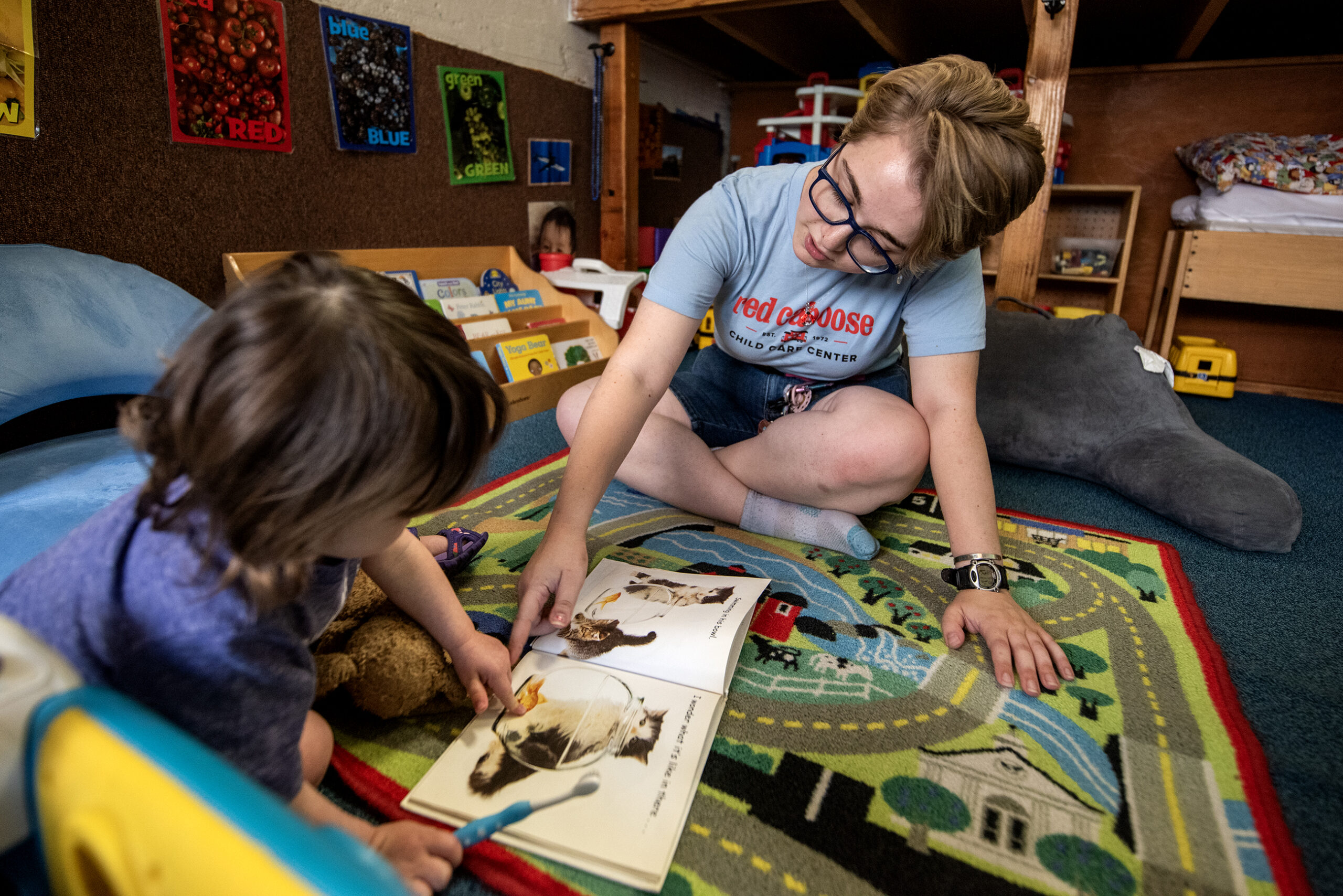It’s lunchtime at Red Caboose in Madison and Morgan Cutler is helping 11-month-old Cassie with her meal.
Like most days in the toddler room, more ends up on the floor — and on Cutler — than anywhere else.
“The most she’s actually eating is the apple,” Cutler said with a laugh. “Other than that, it’s some swallows of milk, some spitting out of milk.”
News with a little more humanity
WPR’s “Wisconsin Today” newsletter keeps you connected to the state you love without feeling overwhelmed. No paywall. No agenda. No corporate filter.
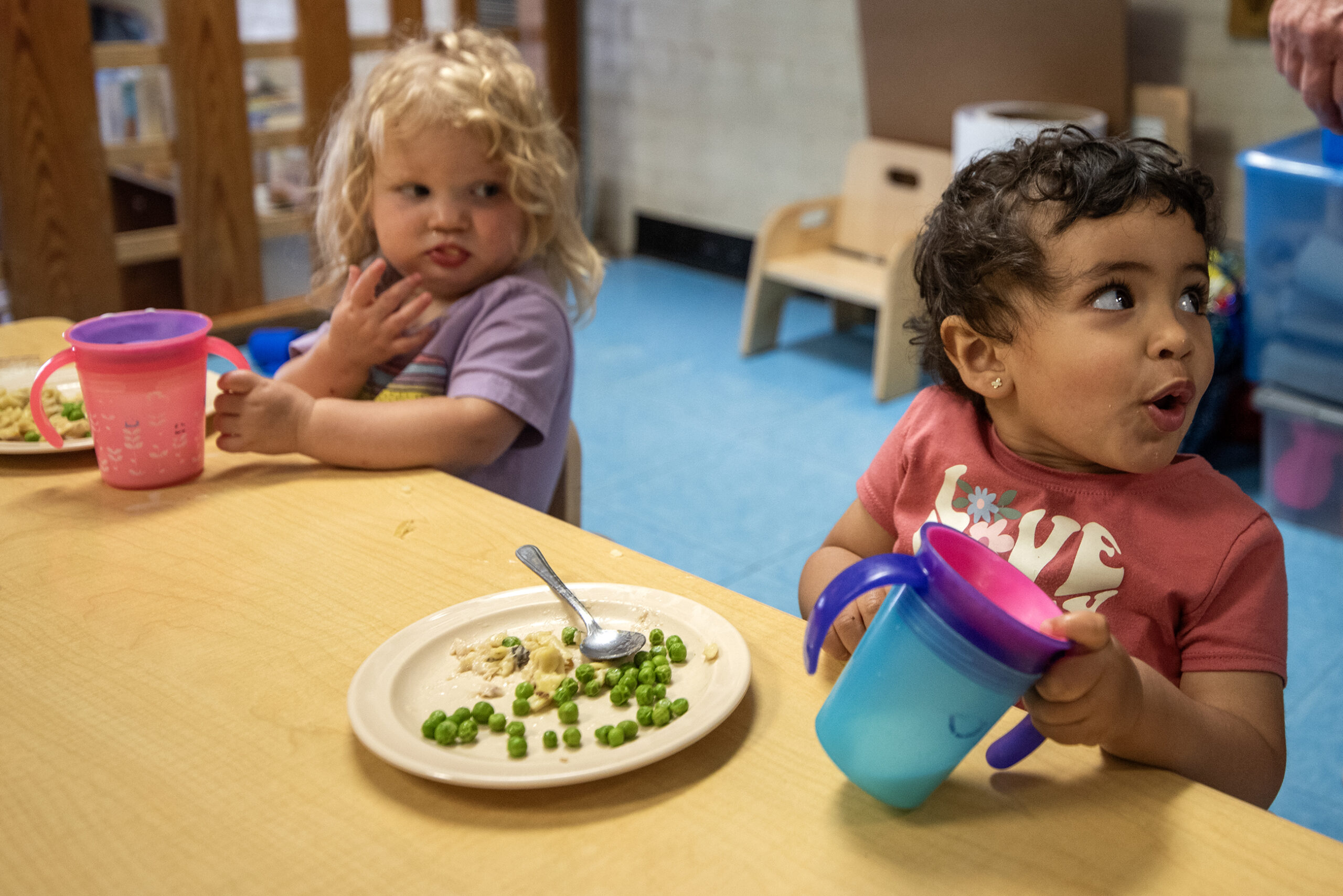
The 25-year-old has worked at the child care center since 2018. She’s the youngest full-time teacher on staff and said she has Madison College to thank for getting her there.
“When I was getting a tour done of the building and the classrooms, I was in the 3-year-old room, and I was sitting on the floor … a child came up and sat on my lap. And that solidified me like, ‘Yeah, this is the right place for me,’” Cutler, who graduated with a degree in early childhood education in May 2020, recalled.
But her family worries about her future in a job with staggeringly low pay. They’ve even pushed her to consider a more lucrative career.
“I don’t care if the pay is better. What I care about is do I feel comfortable? I mean, that’s pretty much all there is to it,” she said.
But low wages have pushed many child care workers out. Nationally, 100,000 child care workers have left the field since the start of the pandemic. That’s contributed to a growing crisis for parents and day care providers.
It makes it all the more surprising that early childhood education programs at the state’s tech schools are stable — if not growing.
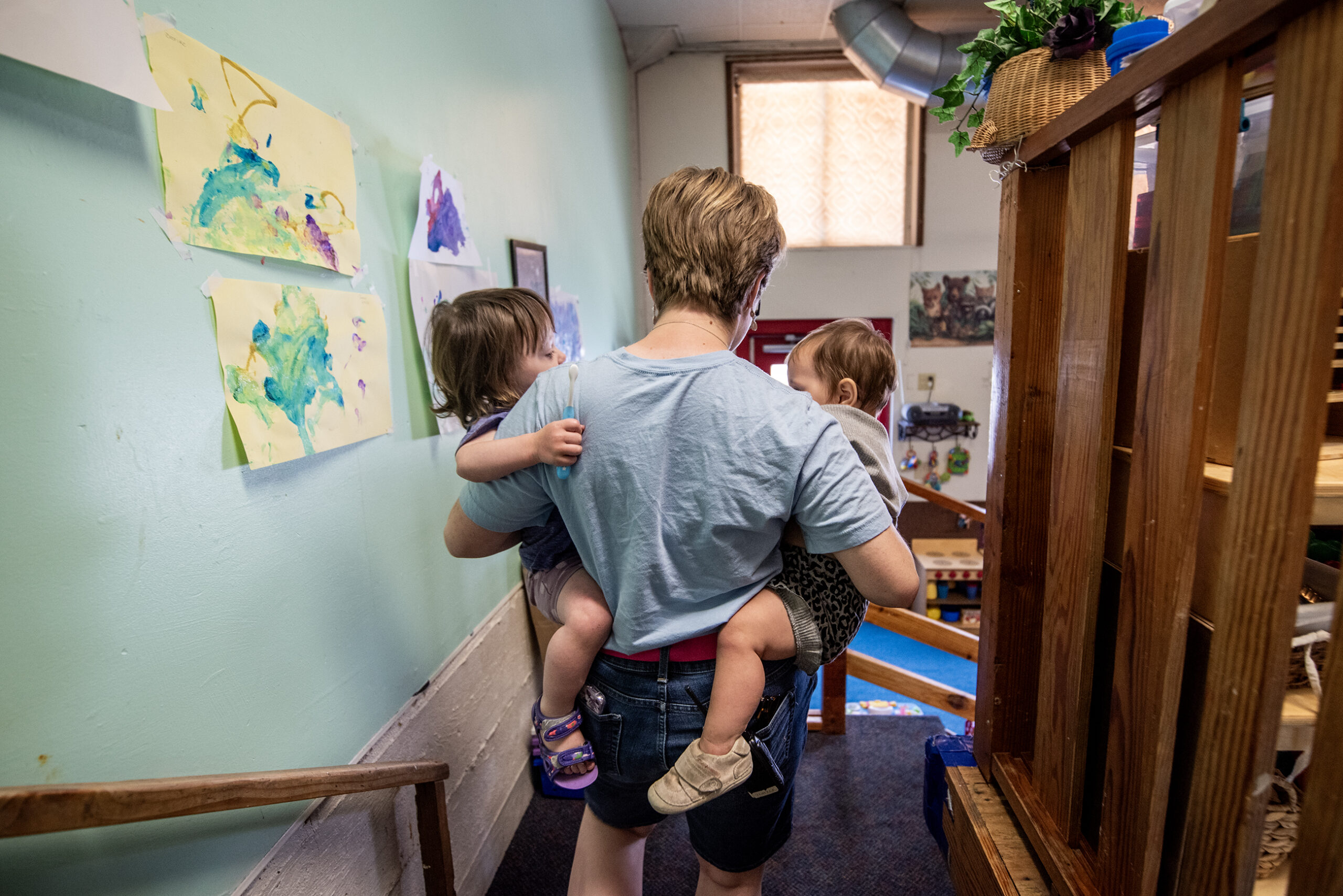
Katy Pettersen is the director of strategic advancement for the Wisconsin Technical College System, which oversees the state’s 16 tech schools.
“Last year, we saw a 10 percent increase in enrollment over the year before,” Pettersen said. “Now, we’re not to pre-pandemic levels yet, but that does tell me that we are going in the right direction.”
She said part of that success has to do with robust state funding for students who get degrees in early childhood education. Run through the T.E.A.C.H. program, more than 10,000 early childhood education students have gotten state scholarships since 1999. In 2022 alone, 1,052 students received a scholarship, according to the Wisconsin Early Childhood Association.
Jessica Cioci, the dean of Madison College’s School of Human and Protective Services, said the program is a game-changer.
“I think our full-time equivalency has increased 40 percent this year, because we’ve been able to award scholarships to help students go through our program,” Cioci said.
But alarmingly high turnover among child care workers — both in Wisconsin and across the nation — is making it clear that scholarships alone aren’t enough.
A survey by the National Association for the Education of Young Children found that 32 percent of the state’s child care workers are considering leaving their jobs.
They tie that to low wages, where the U.S. Bureau of Labor Statistics reports the median hourly pay for child care workers is just $14 per hour.
Anney Tripp, who’s been in the field for the last 18 years, is nearly finished with a degree in early childhood education at Madison College.
“When you put it all together with the emotional, the mental, the physical — I mean, just the amount of physical labor that goes into this work — it’s so severely undervalued by our society and our government,” Tripp said.
A college degree isn’t required to get a job as a child care worker. But it does help child care centers improve their state quality ratings. Obtaining a degree is also one of the only ways people in the field can earn higher wages.
“One of the reasons that I’m getting the degree finally is because in order to get the higher paying jobs in this field, you need one,” they said. After taking a short break from working in child care centers this spring, Tripp recently became the executive director of Tenney Nursery & Parent Center in Madison.
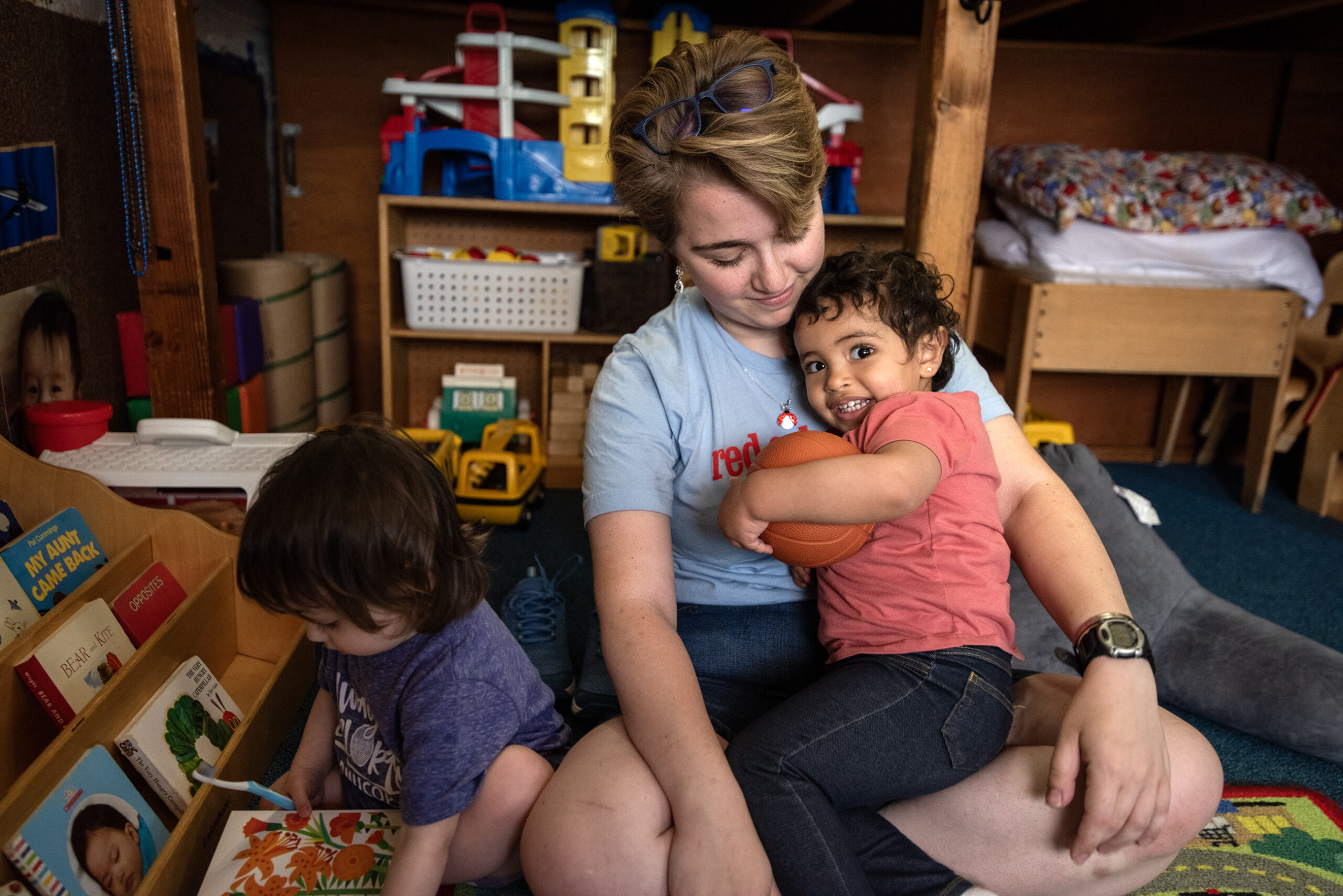
But Tripp said being passionate only goes so far. And they wish everyone valued the work as much as people in the field do.
“(It) makes it really hard for people to want to get into the field,” they said. “Regardless of your passions, you still have to eat.”
Some fear end of federal pandemic aid will accelerate child care crisis
Federal pandemic relief boosted child care worker salaries and helped keep some centers afloat. But those funds are set to run out in early 2024.
In his budget, Democratic Gov. Tony Evers proposed spending $340 million to make Child Care Counts — the program used to distribute the federal child care subsidy program — permanent.
After GOP lawmakers made clear their intentions to scrap Evers’ budget and write their own, Democrats implored them to include funding for Child Care Counts.
But on June 15, the Republican-controlled Joint Finance Committee cut funding for the program from its budget legislation.
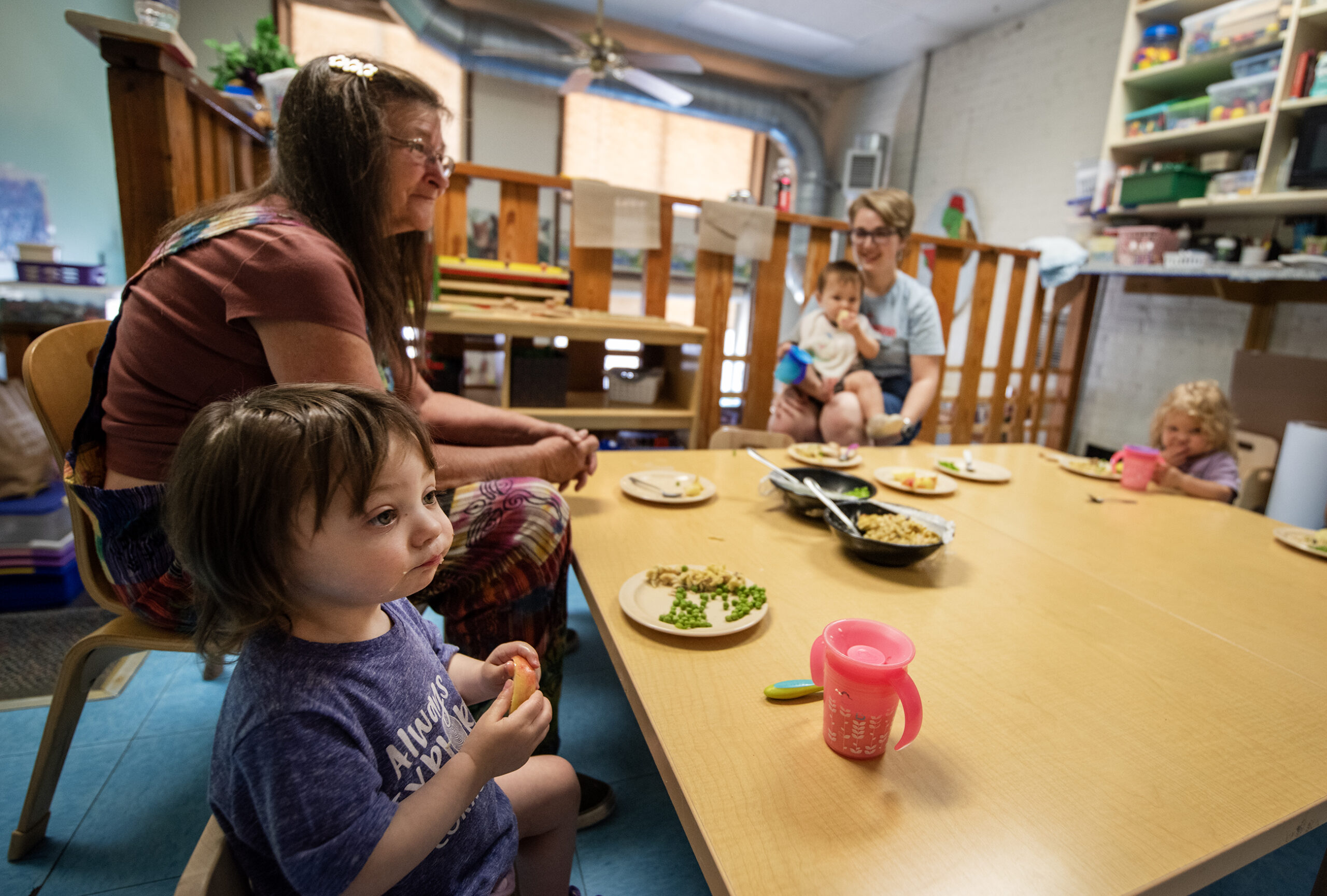
State Sen. Howard Marklein, R-Spring Green, said the Child Care Counts program was meant to be one-time federal relief.
“I understand that some child care centers may choose to raise rates in order to stay in business,” Marklein, co-chair of the finance committee, told Wisconsin Public Radio on June 21. “I understand that some families may choose to make different arrangements for their children when rates are raised. But I also recognize, from personal experience, that most parents choose to pay for quality child care to ensure that their children are safe, healthy and happy.”
But at a June 21 protest on the steps of the state Capitol building, Senate Minority Leader Melissa Agard said the consequences for families and the state’s economy would be “dire” without continued funding for Child Care Counts.
“There is a child care cliff looming in front of us in the state of Wisconsin,” Agard, a Democrat from Madison, said.
Evers signed a final version of the 2023-25 budget — without funding for child care — on July 5.
For Madison College’s Cioci, low wages are a hard truth in the industry they’re actively encouraging people to pursue.
“Our students choose this because they care deeply about children … our hope is that we help them find employment that meets their own financial needs and their own professional needs,” she said. “But we are honest about the fact that the wages in child care are incredibly challenging.”
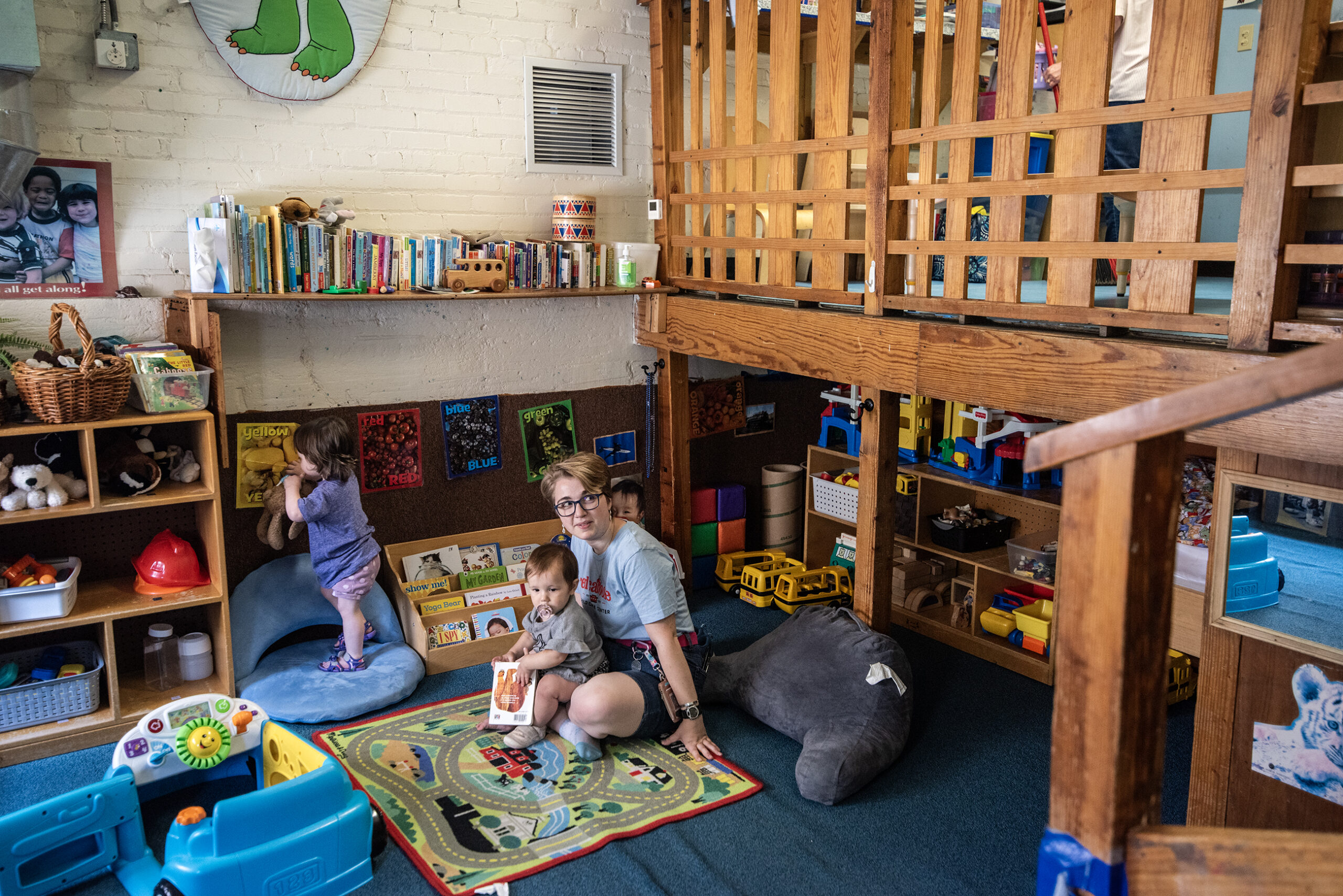
Back at Red Caboose, Cutler is helping the kids settle down for a nap by reading some books.
It’s these little moments, surrounded by toddlers, that keep her in the career.
“I love being at Red Caboose, I will never leave,” Cutler said, adding that what child care workers need most right now is help.
But without an increase in wages, it’s hard to say when — or if — the industry will find more workers.
“I sometimes joke that I wish I could be like an octopus and have multiple arms. Just so I can give this child a hug or separate these children when they’re having a hard time,” Cutler said. “It’s an amazing field. A lot of people don’t appreciate it, but we need more people.”
Wisconsin Public Radio, © Copyright 2026, Board of Regents of the University of Wisconsin System and Wisconsin Educational Communications Board.

